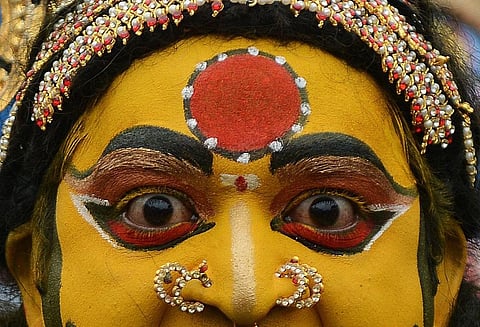The whole India celebrates this Hindu Festival but on different dates and in different months. In Hyderabad and Secunderabad in Telangana, Bonalu is dedicated to Mother Goddess (Shakti) and is observed in the month of Ashada (July – August). This festival is observed on in the temples of Telangana on the Sundays, in particular, in the Ashada month (June – July). Thus, the Bonalu Jatra 2016 dates are July 10, July 17, July 24 and July 31. This year in the Ujjaini Mahankali Temple, it will be celebrated on July 24 and the Rangam is on July 25.


